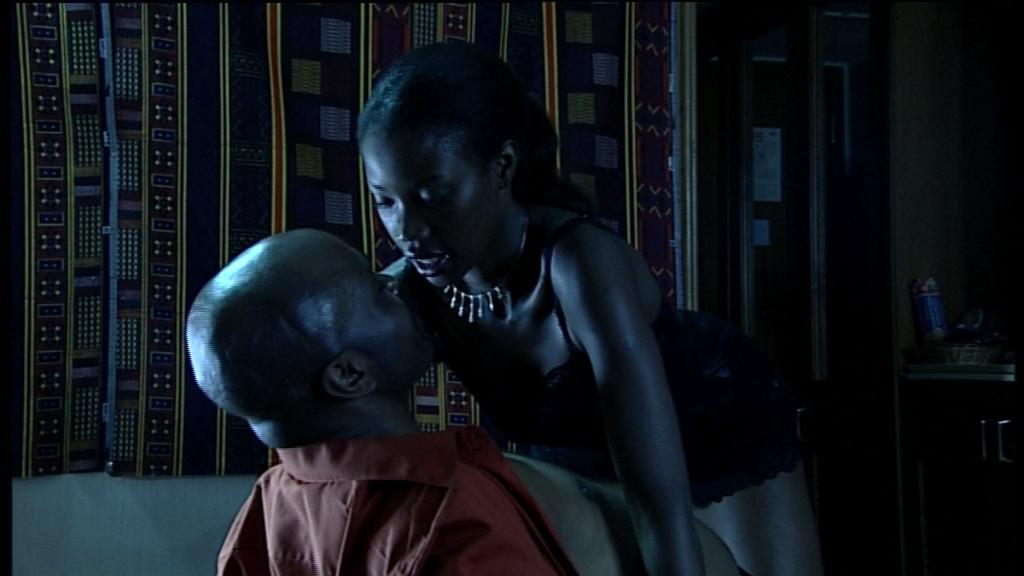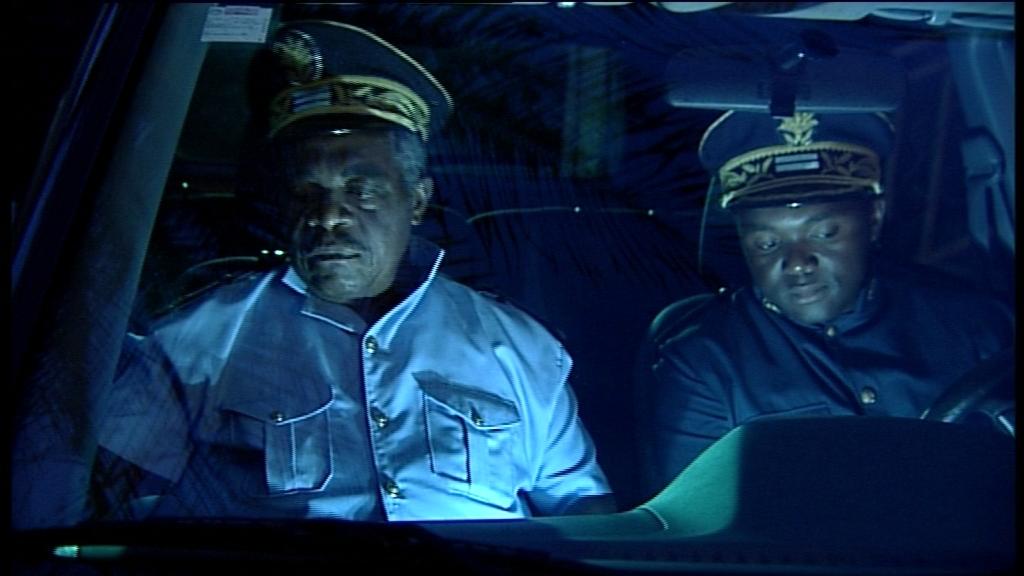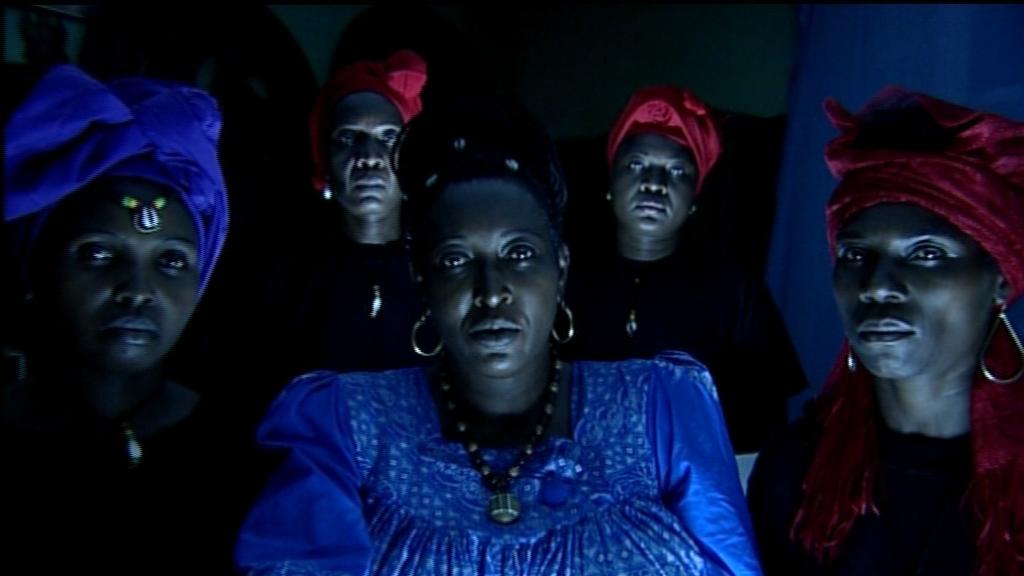
I'm teaching Nervous Conditions by Zimbabwean author and filmmaker Tsitsi Dangarembga this semester, and while creating a study guide for it, I was reminded of the review I had done of the sequel, The Book of Not, on my other blog, originally posted 9 January 2007. It's buried in the archives and hard to find, so I thought I'd repost it on this "literary blog."
The Book of Not by Tsitsi Dangarembga
Here are my first impressions of The Book of Not by Tsitsi Dangarembga. I'd welcome a dialogue with anyone else who has read this book. (Warning: spoilers ahead)
Here are my first impressions of The Book of Not by Tsitsi Dangarembga. I'd welcome a dialogue with anyone else who has read this book. (Warning: spoilers ahead)
"I was young then and able to banish things, but seeds do grow. Although I was not aware of it then, no longer could I accept Sacred Heart and what it represented as a sunrise on my horizon. Quietly, unobtrusively and extremely fitfully, something in my mind began to assert itself, to question things and refuse to be brainwashed, bringing me to this time when I can set down this story. It was a long and painful process for me, that process of expansion. It was a process whose events stretched over many years and would fill another volume, but the story I have told here, is my own story, the story of four women whom I loved, and our men, this story is how it all began."
I’m trying to figure out whether my disappointment in The Book of Not is that of a literary critic or merely that of a reader who had loved Nervous Conditions and identi fied with the forceful yet ambiguous narrative of the main character Tambudzai. Perhaps it is unfair to impose my own expectations of a sequel so long awaited on the author, but from the promising tone of Nervous Conditions' last paragraph, this is the sequel I had imagined: Tambudzai continues at the Sacred Heart academy, does well, receives a scholarship to study in England, and discovers in exile the regretful, cynical voice with which she narrates both novels—finding too late that in her desire for advancement in the European world she had lost her connection to family, to history, and to herself. In the second novel, I imagined, she would begin to retrace her steps to find what she had lost. In any case, I expected that I'd still like the plucky yet imperfect narrator, whatever obstacles she may have to overcome.
fied with the forceful yet ambiguous narrative of the main character Tambudzai. Perhaps it is unfair to impose my own expectations of a sequel so long awaited on the author, but from the promising tone of Nervous Conditions' last paragraph, this is the sequel I had imagined: Tambudzai continues at the Sacred Heart academy, does well, receives a scholarship to study in England, and discovers in exile the regretful, cynical voice with which she narrates both novels—finding too late that in her desire for advancement in the European world she had lost her connection to family, to history, and to herself. In the second novel, I imagined, she would begin to retrace her steps to find what she had lost. In any case, I expected that I'd still like the plucky yet imperfect narrator, whatever obstacles she may have to overcome.
 fied with the forceful yet ambiguous narrative of the main character Tambudzai. Perhaps it is unfair to impose my own expectations of a sequel so long awaited on the author, but from the promising tone of Nervous Conditions' last paragraph, this is the sequel I had imagined: Tambudzai continues at the Sacred Heart academy, does well, receives a scholarship to study in England, and discovers in exile the regretful, cynical voice with which she narrates both novels—finding too late that in her desire for advancement in the European world she had lost her connection to family, to history, and to herself. In the second novel, I imagined, she would begin to retrace her steps to find what she had lost. In any case, I expected that I'd still like the plucky yet imperfect narrator, whatever obstacles she may have to overcome.
fied with the forceful yet ambiguous narrative of the main character Tambudzai. Perhaps it is unfair to impose my own expectations of a sequel so long awaited on the author, but from the promising tone of Nervous Conditions' last paragraph, this is the sequel I had imagined: Tambudzai continues at the Sacred Heart academy, does well, receives a scholarship to study in England, and discovers in exile the regretful, cynical voice with which she narrates both novels—finding too late that in her desire for advancement in the European world she had lost her connection to family, to history, and to herself. In the second novel, I imagined, she would begin to retrace her steps to find what she had lost. In any case, I expected that I'd still like the plucky yet imperfect narrator, whatever obstacles she may have to overcome.This is not what happened. Instead the hints at selfishness and the craving for acceptance that we see in Nervous Conditions (her lack of grief over her brother’s death, her relief to get away from the homestead, etc) develop into a character who, by the end of her first person narrative in The Book of Not, is thoroughly un-likeable. Tambudzai dreams of greatness—greatness being that which will propel her ahead of her classmates, to a position where her family have no option but to be proud, a position in which she can have the vengeance of success to hold over her disapproving mother; she will demonstrate to her white classmates and teachers that she is capable of surpassing them. Although Tambudzai is clearly capable of achievement, her frustrating desire to please, her suppression of her rage, results in failure. Tambudzai’s interest in school has little to do with an actual interest in what she is studying but with honours, awards, and exam results. Nervous Conditions is a Dickensonian bildingsroman tracing the successes of the homestead girl who had the support of a benevolent uncle, an optimistic structure ironically undermined by psychological loss of self a la Black Skins, White Masks. In The Book of Not, Dangarembga systematically tears down Tambudzai’s accomplishments achieved in Nervous Conditions. The trajectory of the narrative is a steady descent into lower and lower levels of a self-negating hell.
Like Nervous Conditions, the story is told through Tambudzai’s unreliable first person narration, yet there are fewer moments of tenderness here. The author doesn't seem to like her narrator very much. Dangarembga takes a particularly bitter swipe at Tambudzai when she comes back to the mission on vacation and finds her subdued cousin Nyasha reading Ngugi’s A Grain of Wheat. Although Tambudzai has been attempting to memorize the complete works of Shakespeare for her exams, she displays an aggressive ignorance of African literature, saying, “[Nyasha] was reading a book she had not bothered to share with me, which rather than being revolutionary seemed to be about agriculture for it was called A Grain of Wheat, written as far as I could see by someone like poor Bongo in the Congo, a starving Kenyan author” (117). Not only is she ignorant of Ngugi’s work but she disdains the efforts of the other African girls to speak Shona together: “These seniors were planning to spend the entire evening trying futiley to turn back time by speaking Shona! Just imagine! Inviting a mark for refusing to accept which language was allowed and which was not when you were as far as the sixth form!... I was not going to identify with a group that spoke in the only language, out of all the ones that were known at the school, which was forbidden” (169). Success for her is in becoming what she is told to become, in rejecting that which is African to embrace that which is European. To speak Shona is to be out of date, to be insubordinate. Having had her early rebellion over using the white girl’s toilets beaten out of her, she no longer questions any rules placed upon her. This is the point where I miss the fiery character Nyasha, who plays only a peripheral and sedated role in this sequel, and whose blunt observations might have provided a balance to Tambudzai's desperate self-delusion.
The history of Zimbabwe here presented is bitterly cynical. The book opens with Tambudzai’s disjointed, almost incoherent, description of her freedom-fighting sister’s leg being blown off and her uncle Babamukuru being beaten by the villageres for being “not exactly a collaborator, but one whose soul hankered to be at one with the occupying Rhodesian forces” (6). This opening accounts for the terror the elite African students as well as the white students at Sacred Heart feel for the Zimbabwean freedom fighters. Tambudzai locks away her memories of her sister’s leg, until her classmate Ntombi comes to weep in her room about a baby cousin being drowned by “terrorists,” because “[t]hey said my aunt is feeding terrorists… Yes, she talked because of what they did to the baby. But it was too late. My little cousin was broken, just broken!... Then my aunt killed herself, because when it’s like that, you’ll never live… No one is alive!” (172). In an initial reading it is hard to tell whether the “Rhodesian” army or the “Zimbabwean” army has committed these atrocities. Tambudzai’s pain is so deep that she tries not to think about it at all.
Despite the struggle for freedom from white rule, the new Zimbabwe, which has emerged by the end of the narrative, mirrors the old. Language is cloaked in political correctness. At school, the girls are "consumed by ... terror" that they might inadvertantly break the school rules about physical seperation between the white and black students. If a black girl should accidentally touch a white girl in an assembly queue "looks of such horror flooded their faces at this accidental contact that you often looked around to see what horrendous monster caused the expression, before you realised it was your person" (58-9). This history is countered with hypocritical inter-racial hugs between the co-workers at the end of the story. But under this shallow familiarity lurks the old racist structures. Tracy, the white student, who knowingly stole Tambudzai’s trophy for the best 0-levels in secondary school, becomes Tambu’s boss. A white copywriter praises Tambudzai’s advertising copy for a hair straightening product and then takes the copy as his own, going on to win a company prize for the text. (The hair straightening product represents the continued structures of idealizing Europeans ideas of what is good, under new leadership. And Tambudzai’s ability to write sentimental copy about it demonstrates her imbrication in these mental structures.) Tambudzai’s dreams are crushed over and over again. She is the ultimate victim. Although she gets the best O-level results in the class, a white girl gets the prize, while Tambudzai goes unacknowledged. Upon becoming a senior, she chooses to focus on math and science, yet because of her race she is not allowed to attend the national boy’s school the other girls from Sacred Heart attend for the science classes. She is left trying to make sense of the sciences from the handwritten notes of a white classmate. Despite hours of study, she miserably fails her A-levels.
Despite the struggle for freedom from white rule, the new Zimbabwe, which has emerged by the end of the narrative, mirrors the old. Language is cloaked in political correctness. At school, the girls are "consumed by ... terror" that they might inadvertantly break the school rules about physical seperation between the white and black students. If a black girl should accidentally touch a white girl in an assembly queue "looks of such horror flooded their faces at this accidental contact that you often looked around to see what horrendous monster caused the expression, before you realised it was your person" (58-9). This history is countered with hypocritical inter-racial hugs between the co-workers at the end of the story. But under this shallow familiarity lurks the old racist structures. Tracy, the white student, who knowingly stole Tambudzai’s trophy for the best 0-levels in secondary school, becomes Tambu’s boss. A white copywriter praises Tambudzai’s advertising copy for a hair straightening product and then takes the copy as his own, going on to win a company prize for the text. (The hair straightening product represents the continued structures of idealizing Europeans ideas of what is good, under new leadership. And Tambudzai’s ability to write sentimental copy about it demonstrates her imbrication in these mental structures.) Tambudzai’s dreams are crushed over and over again. She is the ultimate victim. Although she gets the best O-level results in the class, a white girl gets the prize, while Tambudzai goes unacknowledged. Upon becoming a senior, she chooses to focus on math and science, yet because of her race she is not allowed to attend the national boy’s school the other girls from Sacred Heart attend for the science classes. She is left trying to make sense of the sciences from the handwritten notes of a white classmate. Despite hours of study, she miserably fails her A-levels.
The reader sympathizes with her victimhood, until it becomes obvious that Tambudzai is unwilling to take any action to protest these inequities. She seems to almost aggressively seek a silent martyrdom in pursuit of her own interpretation of unhu, “that profound knowledge of being, quietly and not flamboyantly; the grasp of life and of how to preserve and accentuate life’s eternal interweavings that we southern Africans are famed for, what others now call ubuntu, demanded that I consoled myself, that I be well so that others could be well also” (103). Despite her resentment of racist rules which segregate bathrooms by race, she volunteers to knit socks for Rhodesian soldiers in the fight against her “elder siblings,” to comfort the children of a farmer killed by the “elder siblings,” to ensure that she is viewed favourably by the administration. When Tracy is announced the winner of the prize for the best O-levels, most of the girls know it is a lie because they saw Tambudzai’s results. Yet, when her classmate Ntombi urges her to go talk to the headmistress, telling her that she will come along with her for moral support, Tambuzai refuses and silently sits through the award ceremony in an agony of self-mortification. When the white copywriter takes her out for coffee to inform her that he will be stealing the credit for her “brilliant” advertising copy, she deludes herself that it is a sacrifice she must take for future credit. When he receives an award for the copy, she resigns the job, but she does not even take the satisfaction of claiming her rights in her resignation, but lies that she is quitting to get married.
Much of Tambudzai’s problem is the suppression of her rage: she accepts the position given her by the whites, while taking out her aggression on those who have not achieved her level: the chirpy secretary, her vengeful mother at the homestead. Indeed, although Tambudzai has spent her whole life trying to get away from the bitterness her mother represents, Tambudzai has become exactly what she resents about her mother: she is consumed by bitterness, passive-aggressive vengeance, self-defeating negativity. Like her mother, she is so eaten by self pity that she has no friends, nothing that she enjoys except her own martyrdom.
By the end, the reader has become wary. Even Tambudzai’s smallest goals must be viewed with suspicion, since it is obvious that she is to be allowed not even the smallest of triumphs. At the end of the novel as Tambudzai takes an account of her failures, she realizes that “I had forgotten all the promises made to myself and providence while I was young concerning carrying forward with me the good and human, the unhu of my life. As it was, I had not considered unhu at all, only my own calamities, since the contested days at the convent” (246).
The question I had after plowing through this swamp of self pity is whether Tambudzai, whose cycle of self-imposed goals for recognition, victimhood, and aggressive self flagellation repeats again and again with little new insight, has remained an interesting enough person to warrant the 250 pages Dangarembga spends on developing her voice?
Note: 9 December 2007
Today I googled reviews of The Book of Not and came across these three reviews by Helon Habila, Percy Zvomuya, Helen Oyeyemi.










